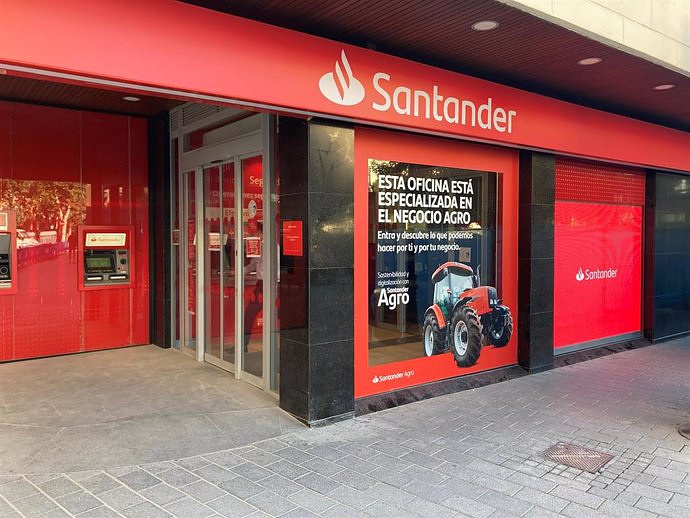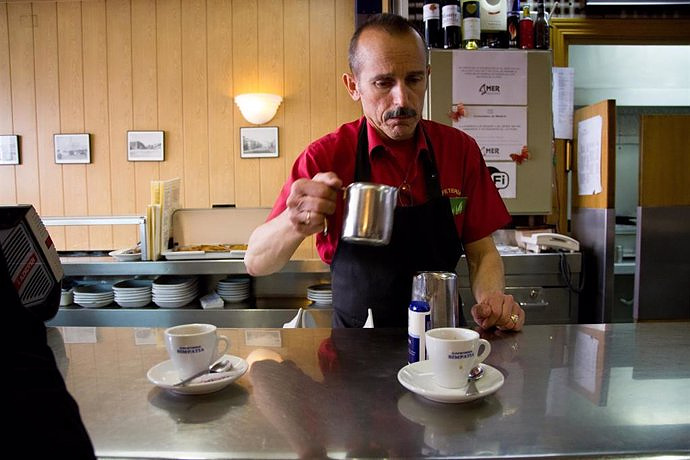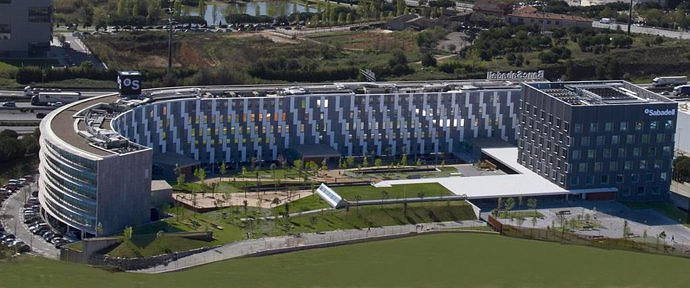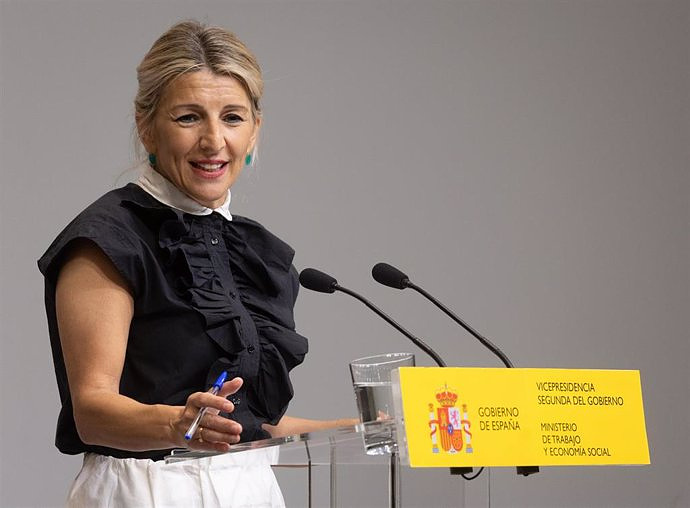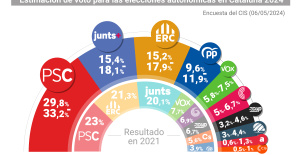MADRID, 26 (EUROPA PRESS)
The Minister of the Interior, Fernando Grande-Marlaska, will "immediately, now" increase the number of radars, surveillance on highways and highways, control over motorists and alcohol consumption while driving to stop the increase in accidents on the roads Spanish, which has grown by 16% in the first quarter of 2024, with 261 fatalities.
"The data, I am going to be very clear, alarms us, because it represents an increase of 16% compared to the same period last year. It is not a normal increase at all," stated the minister, who added that in recent years the fluctuation margin is "more or less" 5%.
In an event held at the General Directorate of Traffic (DGT) with an "urgent nature" and accompanied by the undersecretary of the Ministry of the Interior, Susana Crisóstomo; the General Director of Traffic, Pere Navarro, and General Tomás García, head of the Traffic Group of the Civil Guard, Minister Marlaska has announced a package of measures promoted to increase road safety. The minister has specified that, in some of these points, this package will be executed in a territorialized manner.
Immediately, 95 new fixed radars will be installed, of which 60% will be section radars. Marlaska has specified that this is an increase of 12% to the 763 radars that will control speed on Spanish roads at the end of the year. 150 new Civil Guard agents will also be incorporated to increase their effective presence and the visibility of their motorists on the road; and greater surveillance will be carried out on highways and highways.
"This growth in the workforce allows us to increase its effective presence," said the minister, who added that the visibility of the static and dynamic traffic patrols of the Civil Guard will also be expanded "to reach the greatest possible number of road users with all the beneficial consequences for road safety".
On the other hand, the Traffic Group is going to adapt surveillance and patrolling to the new reality of this accident rate. Thus, in those communities where the increase in deaths has occurred on highways and highways, as is the case of Andalusia and the Valencian Community, patrolling will be increased to reach 50% on these high-capacity roads - from the current 30%. It is going to rise to 50% in these two autonomous communities--. In the rest, the surveillance services will adapt to the accident rate that occurs on each type of road.
Likewise, the minister has said that, during this year 2024, he will increase preventive alcohol controls by 400,000, to reach up to 6 million controls carried out this year; and in 20,000, drug consumption tests, to add 120,000 controls this year. "The objective is to avoid the feeling of impunity," he stressed, while adding that they hope that, by the end of 2024, one in four drivers will have been required to do an alcohol and drug test.
As for motorcyclists, Marlaska stated that the "priority objective is to try to convince them that they themselves are the first to commit to their protection." To do this, he will promote an information and prevention campaign; and the publication and distribution of a decalogue on road safety that the agents will give them when they stop them. In addition, these messages will also be disseminated on road signs and on social networks.
In this scenario, the Minister of the Interior has pointed out that next June, the motorists of the Traffic Group of the Civil Guard will progressively begin to receive their airbags, a moment that they will take advantage of to spread the word about the convenience of using them. "The airbag is going to be, we have no doubt, the great leap forward in safety," he remarked.
Along with this, camouflaged motorcycles will soon enter service in those autonomous communities with the greatest circulation of motorcycles, which are Andalusia, Valencia, Galicia, Castilla y León, the Balearic Islands and the Canary Islands. "They will patrol in the areas and roads with the highest accident rate to better identify and control the risky and reckless behavior of motorists," he said. Throughout Spain, control and surveillance campaigns aimed at this group will be intensified on weekends, between the months of June and October, which is when the highest number of fatal accidents are recorded.
In view of the celebration of the Jerez Motorcycle Grand Prix (Cádiz) and given that "next Tuesday a long festive weekend begins for many people", Marlaska has called for "prudence, good sense and sanity for everyone." "We have the right, without a doubt, and we have it well deserved, to enjoy ourselves. But it makes no sense that by doing so we endanger our lives and those of others," he concluded.
THE WHY OF THESE MEASURES
Given the 16% increase in the number of road deaths, Marlaska asked the department headed by Pere Navarro to analyze the situation "to identify what had happened during the first three months of this year." "My conclusion is that the lethality of the registered accidents has increased. The deaths have increased more than the hospitalized injured, that is, the number of victims for each of the accidents is greater," he argued.
Furthermore, according to the head of the Interior portfolio, reports from the Traffic Group of the Civil Guard "warn" that more accidents have occurred in which alcohol consumption appears, as well as excessive or inappropriate speed.
Another element that has set off alarm bells is that deaths on highways and highways have increased by 50% compared to the same period last year. In this case, the minister explained that it was usual for 70% of deaths to occur on conventional roads and 30% on expressways. "This has been modified," he remarked. The growth in deaths on conventional roads has stood at 5%.
Marlaska has highlighted the 23% increase in deaths traveling by car or motorcycle, when "until now, the main increase in fatalities occurred among pedestrians, cyclists and motorcyclists, that is, the most vulnerable users." . In the case of motorcycles, the greatest increase in deaths has taken place on highways and highways.
By type of accident, the Minister of the Interior has warned that all have suffered an increase, except for accidents; Road departures and collisions continue to be the most frequent types. Marlaska has also warned of another "relevant data" and that is that the number of people who die on a weekday increases by 29%, compared to the 1% that increases on the weekend.
One last piece of information that the head of the Interior portfolio has highlighted is that 34% of those killed on the road during this first quarter of the year were not wearing a seat belt. "It seems like a lie, right? Well, that's how it is," he said, and then rejected a decision that he described as "irresponsible."
"Given these data, you will reasonably understand why the alarms have gone off and we feel obliged to act. It is imperative to break this upward trend in road mortality," argued the minister, who clarified that this increase in accidents and fatalities is not exclusive to Spain, but "there is widespread concern" in the European Union, with data such as the increase recorded in Ireland (29%) or France (13%).

 Exploring Cardano: Inner Workings and Advantages of this Cryptocurrency
Exploring Cardano: Inner Workings and Advantages of this Cryptocurrency Seville.- Economy.- Innova.- STSA inaugurates its new painting and sealing hangar in San Pablo, for 18 million
Seville.- Economy.- Innova.- STSA inaugurates its new painting and sealing hangar in San Pablo, for 18 million Innova.- More than 300 volunteers join the Andalucía Compromiso Digital network in one month to facilitate access to ICT
Innova.- More than 300 volunteers join the Andalucía Compromiso Digital network in one month to facilitate access to ICT Innova.-AMP.- Ayesa acquires 51% of Sadiel, which will create new technological engineering products and expand markets
Innova.-AMP.- Ayesa acquires 51% of Sadiel, which will create new technological engineering products and expand markets The Prado will exhibit Caravaggio's 'Ecce Homo' from May 28 after a temporary loan agreement with Conalghi
The Prado will exhibit Caravaggio's 'Ecce Homo' from May 28 after a temporary loan agreement with Conalghi The judge officiates the UCO of the Civil Guard in the case against Begoña Gómez for alleged influence peddling
The judge officiates the UCO of the Civil Guard in the case against Begoña Gómez for alleged influence peddling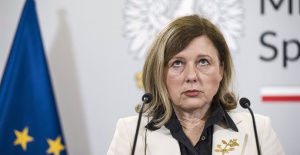 Brussels sees no more risk for the rule of law in Poland and is preparing to close the sanctioning file
Brussels sees no more risk for the rule of law in Poland and is preparing to close the sanctioning file The PP calls to mobilize on May 26 against the amnesty, the "hoaxes" and the "suspicion of corruption" of the Government
The PP calls to mobilize on May 26 against the amnesty, the "hoaxes" and the "suspicion of corruption" of the Government How Blockchain in being used to shape the future
How Blockchain in being used to shape the future Not just BTC and ETH: Here Are Some More Interesting Coins Worth Focusing on
Not just BTC and ETH: Here Are Some More Interesting Coins Worth Focusing on UMH researchers are working on a high-quality apricot crop that requires less irrigation water
UMH researchers are working on a high-quality apricot crop that requires less irrigation water The UPV develops an application to improve the quality of life of patients with glioblastoma
The UPV develops an application to improve the quality of life of patients with glioblastoma A sensor system obtains the fingerprint of essential oils and detects if they have been adulterated
A sensor system obtains the fingerprint of essential oils and detects if they have been adulterated Faraday UPV presents the 'Origin' rocket to exceed 10 km of flight: "It is the beginning of the journey to space"
Faraday UPV presents the 'Origin' rocket to exceed 10 km of flight: "It is the beginning of the journey to space" A million people demonstrate in France against Macron's pension reform
A million people demonstrate in France against Macron's pension reform Russia launches several missiles against "critical infrastructure" in the city of Zaporizhia
Russia launches several missiles against "critical infrastructure" in the city of Zaporizhia A "procession" remembers the dead of the Calabria shipwreck as bodies continue to wash up on the shore
A "procession" remembers the dead of the Calabria shipwreck as bodies continue to wash up on the shore Prison sentences handed down for three prominent Hong Kong pro-democracy activists
Prison sentences handed down for three prominent Hong Kong pro-democracy activists ETH continues to leave trading platforms, Ethereum balance on exchanges lowest in 3 years
ETH continues to leave trading platforms, Ethereum balance on exchanges lowest in 3 years Investors invest $450 million in Consensys, Ethereum incubator now valued at $7 billion
Investors invest $450 million in Consensys, Ethereum incubator now valued at $7 billion Alchemy Integrates Ethereum L2 Product Starknet to Enhance Web3 Scalability at a Price 100x Lower Than L1 Fees
Alchemy Integrates Ethereum L2 Product Starknet to Enhance Web3 Scalability at a Price 100x Lower Than L1 Fees Mining Report: Bitcoin's Electricity Consumption Declines by 25% in Q1 2022
Mining Report: Bitcoin's Electricity Consumption Declines by 25% in Q1 2022 Oil-to-Bitcoin Mining Firm Crusoe Energy Systems Raised $505 Million
Oil-to-Bitcoin Mining Firm Crusoe Energy Systems Raised $505 Million Microbt reveals the latest Bitcoin mining rigs -- Machines produce up to 126 TH/s with custom 5nm chip design
Microbt reveals the latest Bitcoin mining rigs -- Machines produce up to 126 TH/s with custom 5nm chip design Bitcoin's Mining Difficulty Hits a Lifetime High, With More Than 90% of BTC Supply Issued
Bitcoin's Mining Difficulty Hits a Lifetime High, With More Than 90% of BTC Supply Issued The Biggest Movers are Near, EOS, and RUNE during Friday's Selloff
The Biggest Movers are Near, EOS, and RUNE during Friday's Selloff Global Markets Spooked by a Hawkish Fed and Covid, Stocks and Crypto Gain After Musk Buys Twitter
Global Markets Spooked by a Hawkish Fed and Covid, Stocks and Crypto Gain After Musk Buys Twitter Bitso to offset carbon emissions from the Trading Platform's ERC20, ETH, and BTC Transactions
Bitso to offset carbon emissions from the Trading Platform's ERC20, ETH, and BTC Transactions Draftkings Announces 2022 College Hoops NFT Selection for March Madness
Draftkings Announces 2022 College Hoops NFT Selection for March Madness


